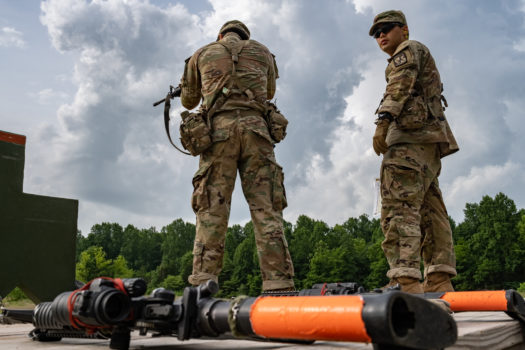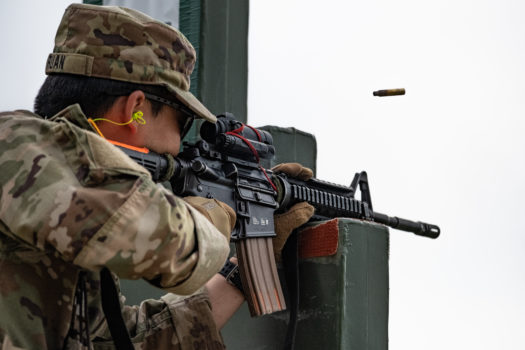The deafening boom of gunfire echoed through Pells range as Cadets from 3rd Regiment, Advanced Camp, went for their M4A1 qualification. This event is the culmination of prior training exercises that the Cadets had to go through in order to reach this point. Exercises such as preliminary marksmanship instruction, the engagement skills trainer, group and zeroing, and battle march and shoot all aim to prepare Cadets for this final moment.
Of the Cadets present for the M4 qualification, Wang Ruan from the University of San Francisco waits for his chance at the range. While this would be Ruan’s first time qualifying for the Army, it was not his first time qualifying for the military.

“I was a prior service marine for four years,” said Ruan, “I went to the West Coast Marine Corps Marine corps recruit depot (MCRD) San Diego for bootcamp, [then] went to Okinawa for two years. After I came back to MCRD [and] served as a financial technician.”
While Ruan was in the Marine corps, where he earned the rank of corporal, he qualified as an expert marksman for three years.

When comparing the difficulty between the Marine Corps qualification and the Army’s, Ruan believed that the Army was a more challenging ordeal.
“In the Marines, we do stationary targets,” said Ruan, “We have different yards; 100-yard, 200-yard, and 500-yard targets, but those targets don’t come up at the same time. You shoot them, they go down, and the Marines over at the pit will plot out your targets and they will push [them up] so you can shoot again. In the Army all the targets are automatic and they pop up at the same time, so it’s actually harder.”
Ruan ultimately decided to transition from the Marines into the Army for a couple of reasons.
“The Army is larger and gave more opportunities for better career paths,” said Ruan, “I totally love the Marine Corps, but it’s a really small organization compared to the Army. In the Marine Corps, you wouldn’t have many military intelligence officers, but in the Army as a whole, a lot of people can be in that slot.”




